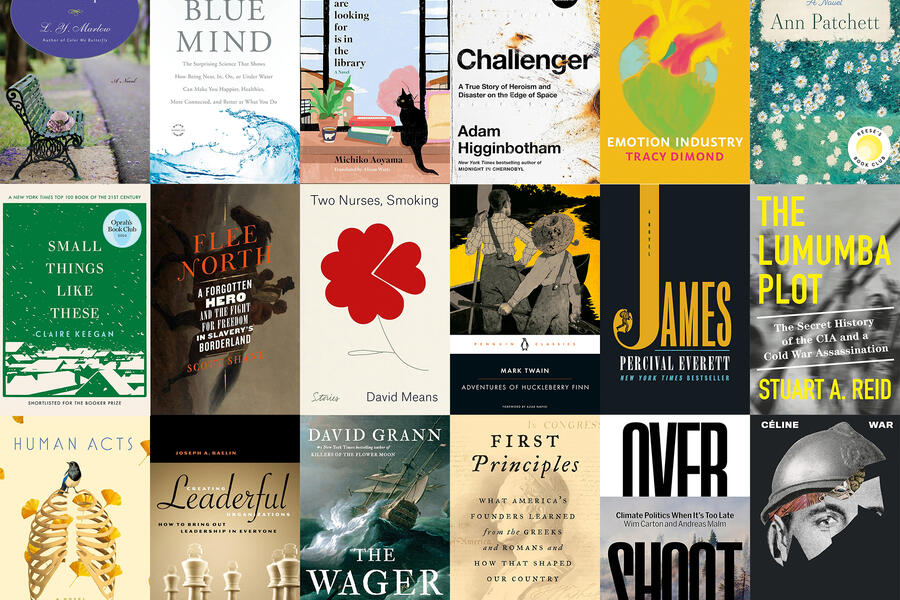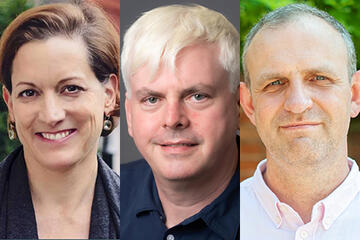It's no surprise that Johns Hopkins faculty, staff, and administrators are a community of readers. From the dean who reads a book a week to the career development adviser who can't resist adding new finds to the growing pile of books next to his desk, Hopkins people voraciously read their way through 2024. Here are some of their favorites.
Susan Muaddi Darraj
Senior lecturer | Writing Graduate Programs; author of Behind You Is the Sea (HarperCollins, 2024)
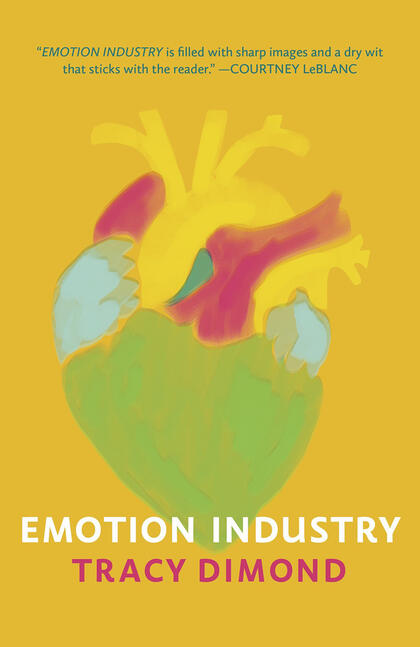
I have been telling everyone I can about Tracy Dimond's first full-length poetry collection, Emotion Industry. Dimond is a Baltimore resident who worked as a librarian and curator of literary programming for years, and her poetry is so captivating. It has tremendous energy, and every line is so thoughtful and smart. Her topics range from living with chronic illness in a world that doesn't tolerate, being queer in a society that is increasingly vocal about its hate, to feminist rage against patriarchy, to critiquing capitalism and its way of commodifying our lives and talents. Every single poem here is a little gift, a gem of compassion.
Christopher Cannon
Bloomberg Distinguished Professor | English and Classics

My choice would be Tom Lake by Ann Patchett. What I liked so much was the way the very carefully interleaved plot of past and present (it is set during the pandemic) opened out so firmly into optimism: It seems to say that troubled pasts can yield richly satisfying lives. This is all the more impressive because Patchett makes Chekov's tragic The Cherry Orchard a touchstone (Tom Lake is set in a cherry orchard) as well as Thornton Wilder's haunting (and sad) Our Town—it turns out, that in her hands, there are better outcomes possible. I'll also say that I didn't read this book in the conventional way but listened to it on Audible in large part because I learned Meryl Streep read it there. That, in itself, was a joy and a revelation.
Robert Lieberman
Professor | Political Science
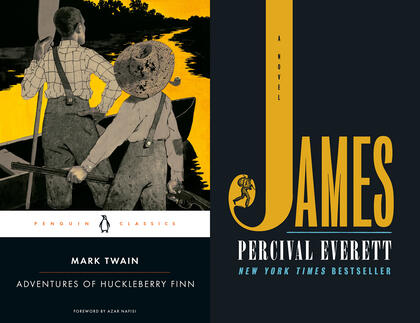
This year I returned, as I do every few years, to Mark Twain's masterpiece, Adventures of Huckleberry Finn. I don't know of any other work that so wholly captures and lays bare the grotesque ethical, social, and political distortions that slavery wreaked on American society. But it's also a hilarious comedy, a picaresque adventure, and a coming-of-age story that reveals new details and layers with each reading. But this time around I didn't have to leave Huck behind when I finished Twain's version of his story. I followed up by reading James, by Percival Everett, which follows the same story through the eyes of Jim, who in his escape from enslavement becomes Huck's traveling companion down the Mississippi River, his mentor and guardian, and ultimately his friend. Everett's sense of adventure, comedy, and humanity is every bit the equal of Twain's, and his amazing reimagining of Jim's and Huck's journey adds still greater depth to both the comic and the tragic aspects of this cornerstone of American culture.
Sarah Szanton
Dean | Johns Hopkins School of Nursing
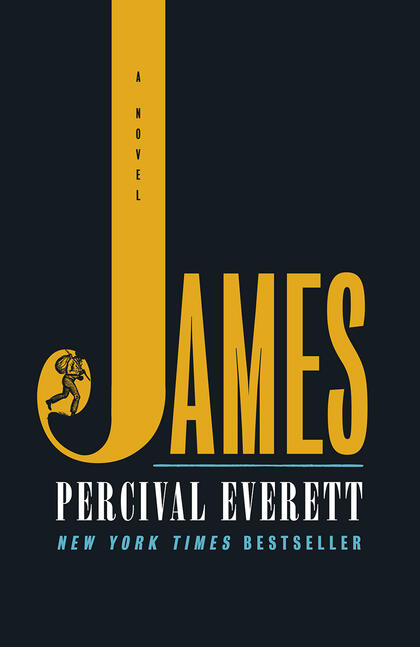
If you've read other Percival Everett books, you know he traverses the space between terror and comedy. James is a riveting and literary work that illuminates both contemporary and 19th century society. The novel is a retelling of Mark Twain's Adventures of Huckleberry Finn narrated by a highly educated Jim. To survive, he must code switch when interacting with white people. As readers of James, we think more deeply about racial identity and the significance of language. It's a thrilling book. And it will go make you read the original again.
Patrick Brugh
Director | Center for Staff Life Design
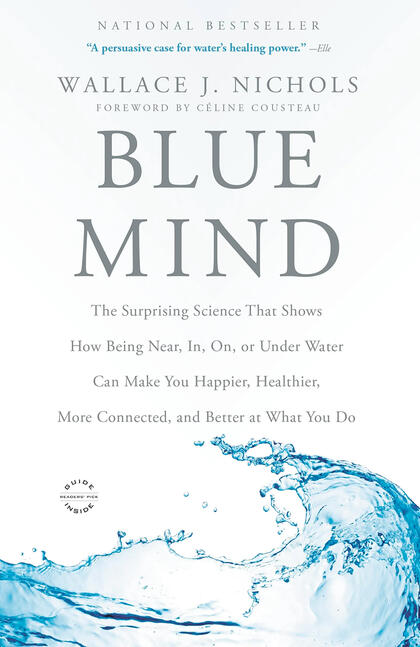
In 2024, I committed to paddling my way through the sea of books that had grown beside my desk. Then, like any good book hoarder, I found a new book while visiting the National Aquarium with my kids at the beginning of the year, and I bought and read that one instead. Blue Mind by Wallace J. Nichols is part study and part meditation on the way that water and our connection to water calms, cures, and soothes what ails us physically, socially, and emotionally. As a lifelong swimmer, the premise is both refreshing and validating for my bias toward all things aquatic; as a native Baltimorean, it makes me wonder how we might continue to make visible and protect one of the most treasured (and abused) natural elements of our community; and, as a life design educator, it calls me to reflect on the role our environment—but water especially—can play in creating balance and coherency in our lives.
Michelle Fitzgerald
Curator of collections | Evergreen Museum & Library
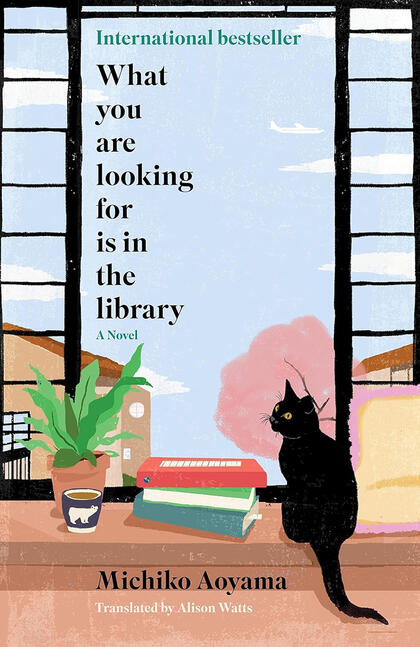
I recently had a long flight that I only made it through by bringing several books to keep me company. Of these, I found myself feeling delightfully cozied up (even in a cramped airplane seat) while reading Michiko Aoyama's What You Are Looking For Is in the Library, whose English translation was published in 2023.
The book centers around a community center library and five of its visitors, each of whom find guidance through unexpected books on a whole variety of themes. With a sense of subdued magic and a gentle exploration of the inevitable crossroads everyone faces in life, this book stood out to me—even in a currently busy market of "books about books." As we start to move into the liminal space that is the winter holidays, I would recommend taking the time to enjoy this novel and make new friends with the book's charming library staff!
William Blair
Research professor | Department of Physics and Astronomy
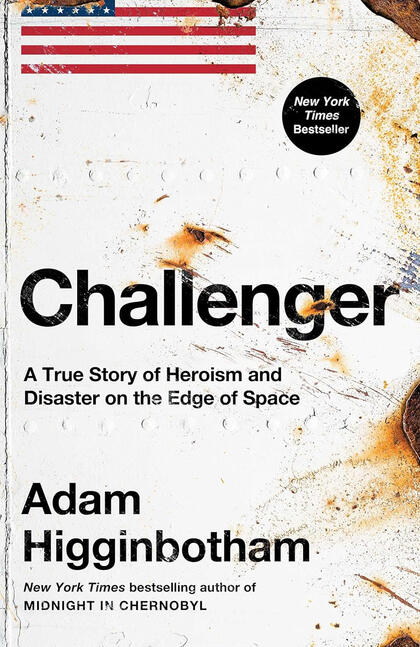
Challenger: A True Story of Heroism and Disaster on the Edge of Space, by Adam Higginbotham, is a carefully researched and wonderfully presented book that chronicles the trials and travails of the early space shuttle program, including especially the back story behind the Challenger shuttle disaster of January 1986. It reads like a fiction thriller but it is actually the real story. As captivating as it is to read, I found it all the more compelling because of a connection to JHU astrophysics history: The first flight of the Hopkins Ultraviolet Telescope, including my colleague (then) JHU research scientist Sam Durrance, was scheduled to launch on the following shuttle mission in March 1986, to observe (among other things) Halley's comet. Thus, we were the next mission scheduled after Challenger. Of course, we were delayed (ultimately flying in late 1990 and again in March 1995). The Hubble Telescope launch was also caught in this large delay in shuttle flights, finally launching in April 1990.
Everyone knew that flying on the shuttle was risky business, but this book lays out the risks in chilling detail. It is a fascinating read.
Leonardo Lisi
Associate professor | Comparative Thought and Literature
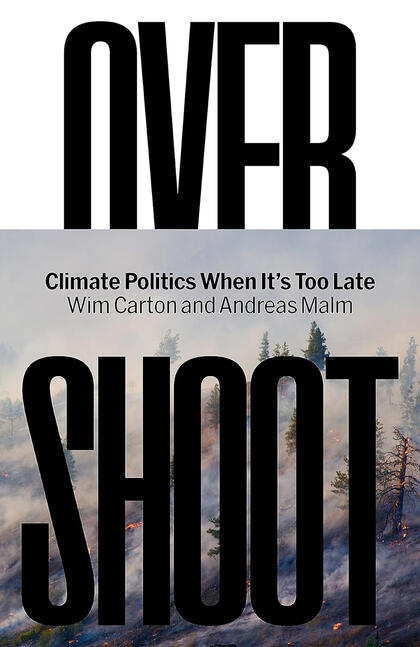
Andreas Malm and Wim Carton's just-published Overshoot: How the World Surrendered to Climate Breakdown is a tour de force of political ecology. Overshoot refers to the view that we should accept that we will transgress the various average temperature increases that we have set for the planet (1.5°C or 2°C or 3°C etc.) and then wager that we can meet them later through geoengineering. Malm and Carton attack this line of thinking as out of touch with reality and merely aimed at protecting the fossil fuel industry's existing investments and future profit margins. As such, it also forecloses a more radical questioning of whether capitalism is at all capable of addressing the climate crisis and what alternatives may be possible. For Malm and Carton, once climate breakdown becomes inevitable there will be more to fight for, not less.
Daniel H. Weiss
Homewood Professor of the Humanities | Department of the History of Art

I have been thinking a great deal about the place of character in our civic lives—and especially among our leaders. Thomas E. Ricks' magisterial book First Principles: What America's Founders Learned from the Greeks and Romans and How That Shaped Our Country takes us back to our first presidents—Washington, Adams, Jefferson, and Madison—to explore their understanding of Classical learning and its role in forming their characters and that of the nation they were building. Ricks helps us to appreciate the central importance these leaders placed on deep historical inquiry in shaping their values and commitments, and in so doing, he invites us to reflect carefully on our present circumstances and what we might learn from the past.
Kamila Alexander
Associate professor | School of Nursing
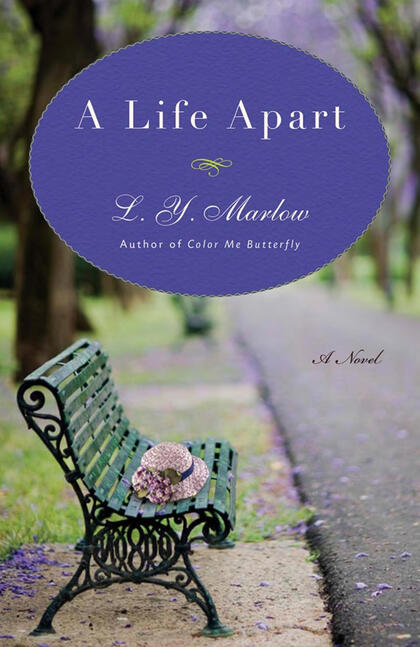
I read L.Y. Marlow's A Life Apart: A Novel while on vacation this summer. I had read her award-winning best-seller and memoir Color Me Butterfly many years before but hadn't picked up this one yet. I was originally drawn to the author's work because she recounts personal experiences of multi-generational domestic violence in a Black American family context and that really resonates with my research. A Life Apart is historical and quite different but includes themes of familial trauma, redemption, emotional love, and forgiveness across two families that end up living a short distance apart in Boston. The barriers and pain of America's racial hierarchy that accompanied a forbidden romance were front and center throughout the book. It was an easy "beach" read that tugged on my heartstrings and also left me full of hope that human kindness can always change the dynamic of challenging interpersonal relationships.
Satoru Hashimoto
Assistant professor and director of undergraduate studies | Comparative Thought and Literature
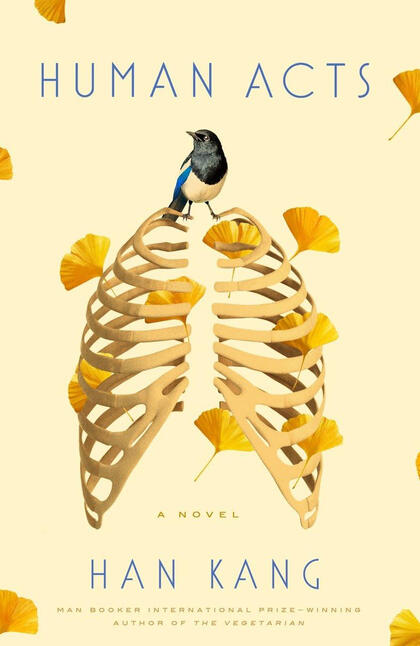
The moment I received the Hub's request for an annual book recommendation didn't give me the luxury of mulling over my pick. Han Kang's Human Acts was a centerpiece of the author's winning of this year's Nobel Prize in Literature, invoked by South Korean news anchors and commentators in the aftermath of President Yoon Suk Yeol's shocking declaration of martial law, and waved by protestors at the rallies and on the streets in Gwangju calling for his removal from office. This book suddenly gained these resonances within a mere few days this month, and they were as frightening as unanticipated. Their ripple effects should be felt everywhere this book is read, because by commemorating the victims of the massacre committed by the martial law army in Gwangju 44 years ago, it conjures up specters of violence that constitutes the conditions for our normal enjoyment of rights and freedoms. The narrative, symbolism, speech, diction, etc. that Han Kang experiments on unsettle our sense of normalcy—in such a way that she makes literature touch on reality at its most unexpected moments.
Ray Jayawardhana
Provost and Professor of Physics and Astronomy; author of Strange New Worlds, Neutrino Hunters and Child of the Universe
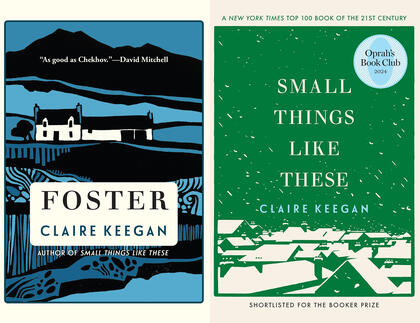
Of the books I read or listened to this year, two short novels by Claire Keegan, Small Things Like These and Foster, both set in rural Ireland, stood out as especially compelling. The first is about a small-town merchant whose chance encounter with a teenage girl locked in a coal shed at a convent brings up his own past and troubles his conscience. The second is about a young girl sent to live with relatives while her mother gives birth to yet another sibling. There's sadness and tragedy woven through both stories, but compassion, hope, and courage also shine through. Keegan's writing is sparse and precise yet packs a punch; it's rich with flair and meaning.
Michael Hersch
Professor of Music Composition | Peabody Conservatory
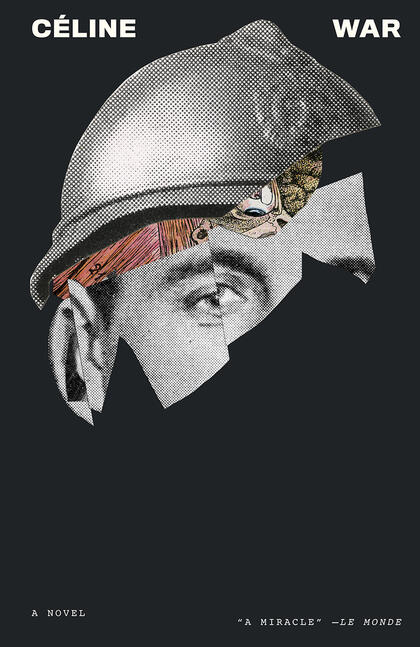
The work of author Louis Ferdinand Auguste Destouches, best known by his pen name Louis-Ferdinand Céline, dives headlong into the dark side of human nature. The recently released War in a translation by Charlotte Mandel, is no exception. Like Céline's other work, War displays a unique ability to express not just disassemblage of the corporeal, but the butchering of rationality, empathy, and justice—calling to mind Francis Bacon's "brutality of fact." Céline is rightly reviled for antisemitism, and his work hits hard. Confronting the difficult, the grotesque, the insensate, it helps readers understand the complexities of being human. In his work, cataclysm, bloating beyond the horizon line, is on graphic display.
"… And everything toppled over into the scenery of the clouds, into the huge shoulder of the open sea. All the rubbish was over, it had spread all its manure over the earth … buried its millions of suppurating killers, its copses, its corpses … There was nothing more."
In the end, I was reminded of a few chilling lines by another polarizing figure, Ezra Pound: … evil against Nature's increase, Against beauty…
Scott Warren
Fellow | SNF Agora Institute
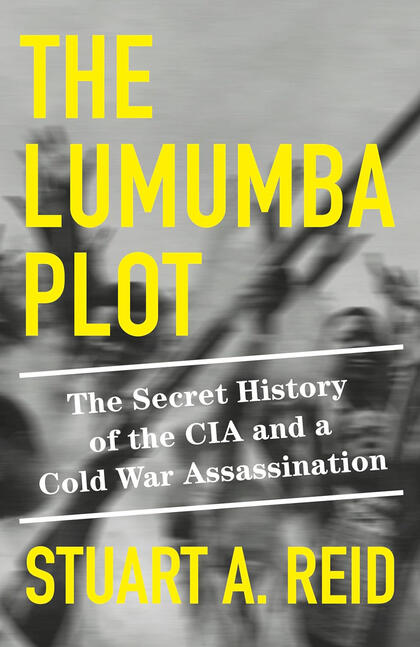
Earlier this year, I devoured The Lumumba Plot: The Secret History of the CIA and a Cold War Assassination. Journalist Stuart Reid's book is part historical recount and complete political thriller, providing an in-depth character analysis of Patrice Lumumba, the eccentric, inspirational, and draconian first prime minister of the Democratic Republic of Congo, who served for only a few months in 1960, until he was imprisoned, and eventually killed.
Reid's deeply researched account demonstrates how Congo was the epicenter for the start of the entire Cold War, and how Lumumba's death set forth a series of events that has resulted in the country suffering through some of the largest (and sometimes least recognized) human rights travesties in recent history. The book is worth picking up—for a gripping read, and to learn from failures in U.S. foreign policy that still carry weight today.
Danielle Underferth
Marketing and Communications Manager | Department of Environmental Health and Engineering
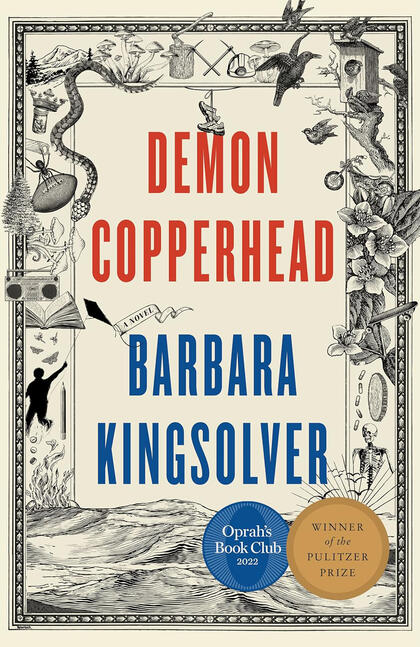
The best book I read this year was Demon Copperhead by Barbara Kingsolver. This loose adaptation of Charles Dickens' David Copperfield brilliantly captures the experiences of Damon Fields, born in poverty in Appalachia and raised by a succession of family members, family friends, foster parents, and ultimately, himself. With the opioid crisis as a backdrop, Damon's haphazard attempts to find stability and love are heartbreaking, shocking, and often funny. It sounds like a bleak ride, and sometimes it is, but Kingsolver's writing sparkles. There's no need to read or be familiar with David Copperfield to appreciate this book.
Savio Franco
Inaugural Director of Leadership Learning | Johns Hopkins University Office of Talent Management
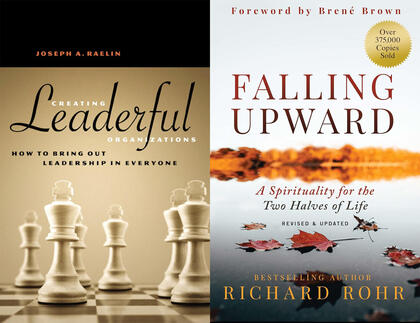
My favorite professional book this year has been Creating Leaderful Organizations: How to Bring Out Leadership in Everyone by Joseph A. Raelin. After reading it in 2003 and a few times since, I reread it this year in preparation for my new position focused on elevating leadership learning at JHU. A university community could be satisfied with being a collection of great experts who are leaders in their respective fields or aspire to be something more—a leaderful system of collaborative, compassionate leaders whose collective force is greater than the sum of its parts. That's the high bar we at JHU ought to aspire to and manifest in all we do for the common good.
I also want to give a shout-out to the 2024 revised and updated version of a book that has been a constant source of gentle wisdom for my personal journey toward professional maturity and human flourishing—Falling Upward: A Spirituality for the Two Halves of Life by Richard Rohr.
Farouk Dey
Vice Provost | Integrative Learning and Life Design
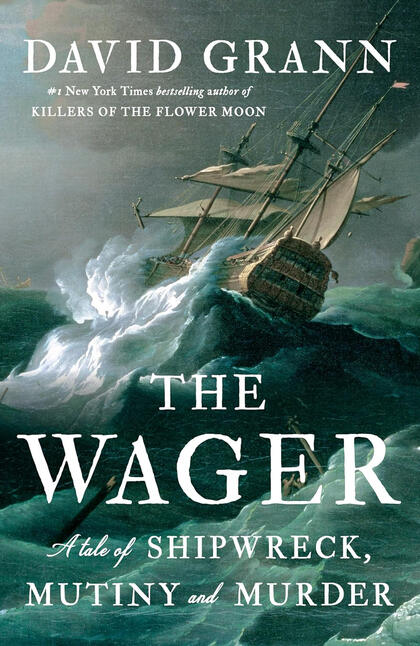
As a sailing enthusiast, I am always drawn to stories of open water voyages, shipwrecks, and human resilience in extreme circumstances. This page-turner did not disappoint. The Wager: A Tale of Shipwreck, Mutiny, and Murder provides a historical account of the harrowing journey of the HMS Wager, a British warship in the 18th century, to the treacherous waters of the south Pacific Ocean and its eventual wreck off the coast of Patagonia. The crew survival sets the stage for a riveting case study of mutiny, loyalty, and morality in the face of absolute chaos. I enjoyed reading this book not only for the exciting sailing voyage and shipwreck tale, but also for its profound and well-researched exploration of the complexities of leadership in the face of chaos, the fragility of order and authority under extreme duress, and the delicate balance between ambition, resilience, endurance, and survival.
Gabrielle Dean
William Kurrelmeyer Curator of Rare Books and Manuscripts | Johns Hopkins Sheridan Libraries
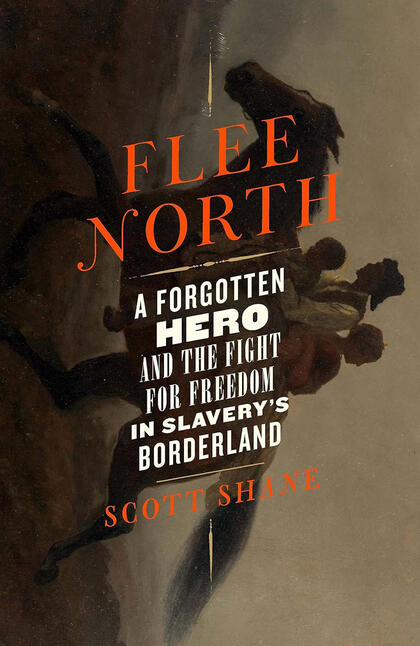
Flee North: A Forgotten Hero and the Fight for Freedom in Slavery's Borderland, by Scott Shane, tells the story of the Black freedom fighter, journalist, and shoemaker Thomas Smallwood, who worked with the white abolitionist Charles Torrey to organize and lead mass escapes of enslaved men, women, and children from Washington, D.C., and Baltimore. I was riveted by the extracts from Smallwood's bitingly satirical columns in abolitionist newspapers and the stage-by-stage accounts of the courageous, dangerous journeys North, which Shane has painstakingly reconstructed. The political situation was calamitous; even the urban infrastructure was designed to aid the institution of slavery. I came away from the book with a renewed and very concrete appreciation for the incredible bravery, faith, and self-sacrifice that was required for this particular phase of the long march toward justice.
Linda DeLibero
Senior Lecturer and Special Advocate for Alumni and Outreach | Film and Media Studies
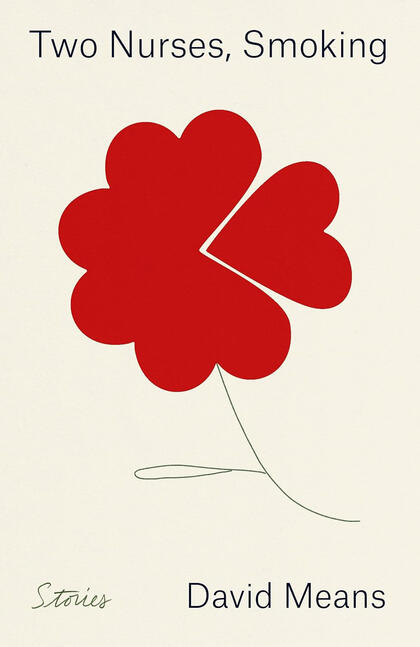
I've been obsessively reading and re-reading the stories of David Means ever since the pandemic began, probably because they engage with something we've all struggled to understand over the past four years: the impossible slipperiness of time. Like the films I love most, Means's stories attempt to capture the vertiginous flow of history and memory, the convergence of past and present, where his characters—often castaways and criminals, sometimes animals—find grace. I've finally made my way to his latest—and possibly finest—collection, 2022's Two Nurses, Smoking, where the narrative constantly plays with and confounds the idea of what a story can be. This may all sound ridiculously heady, but Means is a great storyteller, whose gorgeous prose is grounded in physicality, specifically the lost, neglected landscapes of the upper Hudson and Rust Belt America. At a time when those spaces and their inhabitants are likely to become even more invisible, his stories are a vital reminder of whose stories are important.
Posted in Voices+Opinion




